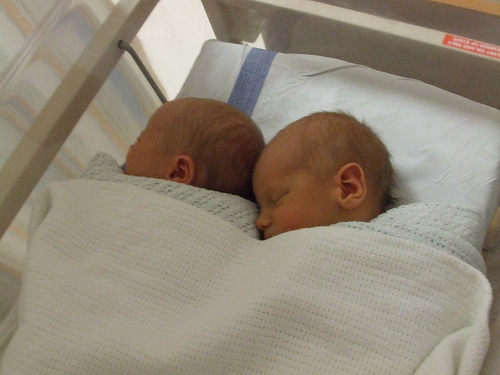If you have chosen to give birth in a country other than your home country, it is important to consider the prenatal care and delivery options available there.
Australia is generally considered a safe place to give birth, as both public and private medical facilities provide excellent services during pregnancy and childbirth, as well as postnatal care. Children born in Australia automatically receive Australian citizenship if at the time of their birth at least one parent was an Australian citizen or permanent resident.Public and private care
Both public and private pre-natal care is available in Australia. Public maternity hospitals provide quality services. Australia’s publicly funded universal healthcare system is called Medicare. Women with healthy pregnancies can book in at their nearest maternity hospital.
There are different models or types of care provided by hospitals and you can choose the one most suitable for you. It is possible to also choose care with minimal intervention, but still have medical-back-up if required. Public care also allows you access to other services like dieticians and physiotherapists. Many of the major public hospitals also provide care for high-risk pregnancies.
It is common practice for midwives to care for low-risk pregnancies and their services are free for those who have Medicare cards. If you have a Medicare card, the costs involved in public care stay quite low. Some of the disadvantages of public care include long waiting times, having to see a different doctor at each visit, and shared rooms. It is also possible that the doctors or midwives you see during your pregnancy may not be present at the time of birth.
Women who opt for private care will receive care from an obstetrician and will generally give birth at a private hospital. Those who opt for private care can also choose to be private patients in a public hospital. There are certain advantages to private care such as having the doctor of your choice caring for you throughout your pregnancy, birth and post-natal period. The appointment waiting times are usually shorter and the rooms at private hospitals may also be preferable.
However, the private care costs may be high for those who don’t have private health insurance. There may also be certain costs that are not included in your healthcare plan. Services like blood tests, ultrasounds and access to dieticians or physiotherapists, which are free for public patients, may come with a charge if you choose private care.
Planning a hospital birth
If you are planning to give birth at a hospital, your doctor or midwife can help in deciding on the choice of hospital. Most people simply choose the hospital closest to their home. If there is more than one facility in close proximity, find out about the type of care provided by each, so that you can make an informed selection. You may also want to take a tour of the facilities before giving birth to check what equipment is available such as birthing chairs, or TENS machines for pain relief. Remember that you can change your mind at any time during the pregnancy about where you would like to give birth. You can also consult your doctor or midwife for more clarity on the topic.
Independent midwives
Some expecting mothers may opt for a home birth assisted by an independent midwife. Midwives are registered with the Australian Health Practitioner Regulation Agency (AHPRA) and they provide care through all stages of the pregnancy, birth and post-natal period. Women with normal or low-risk pregnancies can opt for this type of care. It is not, however, recommended for high-risk pregnancies that carry a higher risk of complications. In any case, there should be a backup plan in place so that you can be moved to a hospital if there are any complications.
Registering a birth
Babies born in Australia must be registered within a period of 60 days of birth in order to obtain a birth certificate. There is no fee for the registration, but there is one for obtaining the birth certificate. The hospital where you give birth will provide a Birth Registration Statement, and this can be filled out and mailed to the relevant State Registry.

